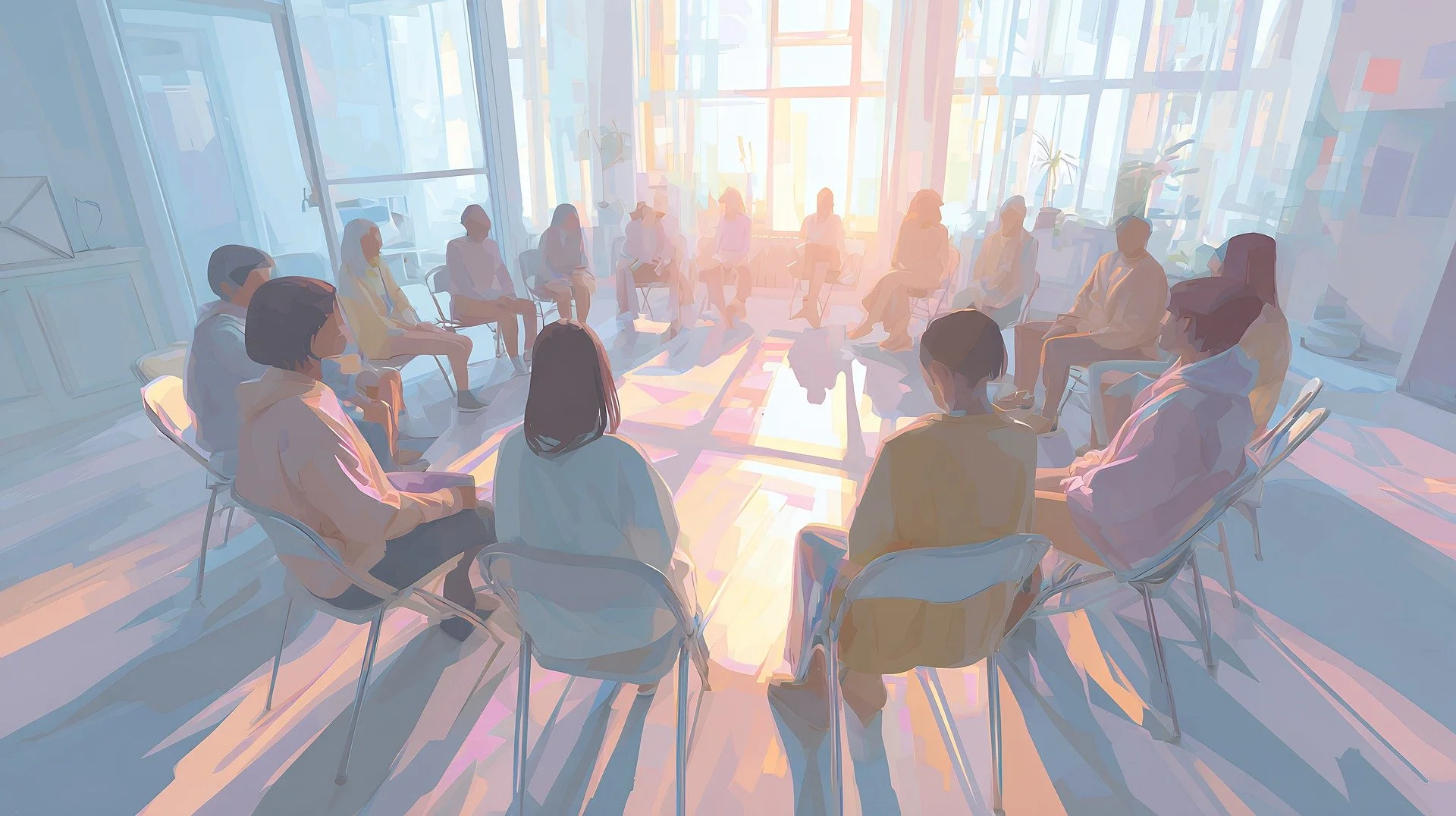Support groups for incest survivors: finding community and connection
Several years after disclosing incest abuse to my husband, I became extremely paranoid about the possibility of our children being vulnerable to sexual assault. He insisted that I go to an incest survivor’s group. While that three-month experience fueled the engine of my recovery, I continued to harbor anxiety and rage. Approximately one year later, my husband asked, “Why can’t you let it go?”
“People in your life get tired of hearing words like ‘trigger,’ and that you’re having a hard time. But people in (a survivor’s) group understand. . . You can’t just talk about it once or twice and have it go away,” says Saprea group leader Toni, of the support groups offered by the non-profit organization originating in Utah. 1
Support groups provide safe space for survivors to share as much or as little of their abuse as they’re comfortable with, a space where the impact of incest can be discussed with others who’ve been through it, who can relate to their challenges. The group “gets it” and can become a community of concern, strength, resilience, and hope.
Incest support groups remind survivors that we’re not alone, at fault for our abuse, or irreparably damaged. Groups foster trust, a sense of belonging, and can reduce feelings of anxiety and depression. Similarly to loved ones of alcoholics in Al-Anon, incest survivors can “join with others in forging the bond of unity that helps us heal.” 2
Below are five support groups which can assist incest survivors in their quest for recovery:
Saprea provides healing services to survivors through online materials, support groups, and a free 4-day in-person retreat (participants must be able to travel to Utah to attend the retreat). Saprea online support groups are run by two leaders who use a script which provides a confidential, consistent structure for participants as they learn. Group members share insights, experience healing, and engage in activities that ground them in the safety of the present. These peer-led groups focus on how sexual abuse continues to affect the survivor’s daily life. (Please consider reading The Effects of Incest on Adult Life.) Through activities and videos, topics such as trauma and the brain, overcoming shame, acquiring new coping skills, and healthy connections are explained.
Survivors of Incest Anonymous (SIA) is a 12-Step fellowship that provides recovery groups for adult survivors of childhood sexual abuse. The organization defines incest broadly, including not only biological relatives, but stepparents, live-in partners of parents, and people in close relationships with the family. SIA hosts mixed gender, women only, and men only meetings. Most meetings are not open to perpetrators of sexual abuse.
Rape, Abuse, and Incest National Network (RAINN) is the largest anti-sexual violence organization in the U S. Their mission is to stop sexual violence by supporting survivors, holding perpetrators accountable, and creating safe communities. They offer online support groups and many resources about recovery (how therapy can help, how to plan for your safety, self-care after trauma, and information for loved ones about how to support survivors in their recovery).
1in6 provides weekly confidential, anonymous online support groups for male survivors of sexual abuse or assault. Their support groups are facilitated by counselors who provide information, answer questions, and keep discussions on track. A trained moderator is present to review comments to ensure each group remains safe and anonymous. There is no cost and support groups are open to all men who have a computer or smartphone with an internet connection.
After Silence is designed to help victims become survivors. Their mission is to support, empower, validate, and educate survivors of rape, sexual abuse, and incest. They also aim to support families and supporters of survivors of all types of sexual violence. The core of the organization is a support group, message board, and chat room where victims and survivors come together online in a supportive, safe environment. Their groups are anonymous, a space where survivors can connect with others in real time, share their stories, ask questions, and move forward in their path toward healing and recovery.
Support groups are not intended to be group therapy. They are designed to help incest survivors recognize they are not at fault for their abuse and are worthy of a safe, serene, joyful life. They can assist participants in identifying their strengths and goals, in being compassionate with and trusting themselves (Please consider reading The Power of Self-Forgiveness for Sexual Abuse Survivors), to set healthy boundaries, and to celebrate their progress.
Support groups cannot provide therapy to overcome complex trauma. Most incest survivors will benefit from trauma-informed therapy with an experienced, licensed counselor. Therapist Robyn Brickel writes, “For many people, trauma happens in the context of relationships…these early wounds shape how we see ourselves, how we relate to others, and how safe we feel in the world. Trauma-informed therapy is not merely about exchanging words or advice, it’s a relationship you build. It is a deeply relational process rooted in healing through connection.” 3
The nine women from my Saprea retreat in 2022 formed a private Facebook group where we keep up with one another and we met online approximately every three months for two years. This group of peers “gets me,” can identify with my intensity, sensitivities, and recovery goals. I pray that every incest survivor reaches out to a support group as an “assist” in their healing process. Every one of you is courageous and deserves a wonderful life!
1 Formerly The Younique Foundation: https://saprea.org
2 Al-Anon Family Group Headquarters, Hope for Today, (2002).
3 Brickel, R. (2025). Why AI can’t be your therapist. Brickel & Associates, LLC, Individual, Marriage, & Family Therapists newsletter.
